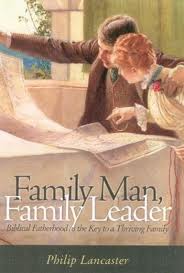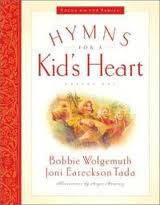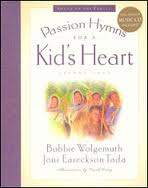
Biblical Worldview Learning Center Families:
Below are the readings and devotionals for this week. Throughout this week we will be reading
of the instructions God gave Moses for the building of the tabernacle. There is great symbolism
and many lessons to be learned from these furnishings. Also, we will read how God not only
placed this great task on Moses, but how God prepared the people necessary to accomplish that
task. In all things we will find God faithful.
Our annual Biblical Worldview Conference is fast approaching. You can check out the details at
our website (www.biblicalview.com). I do hope many of you will be able to attend this excellent
event.
Blessings,
David Barrett, Director
Biblical Worldview Learning Center
david@biblicalview.com
208-377-2367
March 21st
Reading: Exodus 26:1-37
Chapter 26 gives the details Moses received concerning the making of the tabernacle itself.
All the linen, given by the people, that we read about in chapter 25, is to be used to make
curtains for the walls and covering of the tabernacle. Also, they will be used to make a special
curtain inside the tabernacle. That inside curtain is called the veil.
The veil was used to separate two sections of the tabernacle – the holy place and the most holy
place. It was in the most holy place that the ark was put with the mercy seat and cherubims.
You can see that it is going to be in this most holy place that God will meet with Moses and the
High Priest.
God desires to commune or meet with His people. But He must make a way. In Moses' day, it
was through a priest who entered the most holy place. Today, we can meet with God through
Jesus Christ.
March 22nd
Reading: Exodus 27:1-21
Today's reading gives the details for the making of the altar and for the building of the court
section of the tabernacle. Again, much attention is given to the detail of the construction. One
thing you may have noticed is that all the major furniture has poles that are placed through rings
so they can be carried. This is because the Israelites are still traveling through the wilderness
toward Canaan. They will need to take all the parts of the tabernacle from one stopping point to the next. So the tabernacle needs to be portable. They will be able to break it down to transport
it as they travel. And, they will be able to set it up when they stop and stay in one location for a
while.
By breaking the tabernacle down and carrying it with them, the Israelites have the sense that
God is with them and will meet with them when they stop because the tabernacle is with them.
Today, we do not need the tabernacle. God dwells in the hearts of His people and is with them
at all times. He is also ready and willing to meet with any of His people at any time through
prayer. Praise God that He tabernacles with us today where we are.
March 23rd
Reading: Exodus 28:1-43
Having finished the description of the making of the tabernacle and the furniture within the
tabernacle, the Lord now tells Moses about the clothing that is to be worn by the priests who
conduct the ministry within the tabernacle. Special detail is given to the clothing to be worn
by Aaron who will serve as the high priest and enter the most holy place. These articles of the
priestly garment included the ephod, breastplate, mitre (or hat), a girdle, and robe.
The priest will not only speak to the congregation, but he will meet with God in the most holy
place to speak to God for the people of Israel. This is why the ephod and the breastplate had
stones with the names of the twelve tribes of Israel written on them. Symbolically, by wearing
these garments with those stones, Aaron would be bringing the whole nation of Israel before God
when he entered the most holy place. Aaron, then, was the representative of the people before
God.
In Old Testament Israel, they had to rely on the high priest, like Aaron, to carry out their most
important worship to God. Now, since Jesus has come, the way to God’s throne has been opened
for you and me to go to God directly with our needs, our praise, and our requests for forgiveness.
We will read of this wonderful work of Christ when we read in the New Testament. As you read
these Old Testament writings, I want you to realize that they pointed to Christ. As you read and
find out all they had to do in the Old Testament time to properly worship before God, you will
come to appreciate more and more the wonderful work of Christ.
March 24th
Reading: Exodus 29:1-23
In this chapter, the focus stays on the priests of Israel. Now, however, it turns from their
garments to how they will be made holy to minister to the Lord. In other words, God required
a ceremony to take place that would sanctify (set apart) Aaron and his sons as the ones who
could conduct the duties of the office of priest. These duties will be explained in greater detail in
later readings. However, they will include offering sacrifices for the sins of the people of Israel.
For a priest to be qualified to offer sacrifices, he must have a sacrifice for him as well. This
ceremony involved the sacrifices of a young bull and two rams. These sacrifices, God said in verse 1, would "hallow them" and prepare them to "minister unto me [the Lord]."
Today, praise God, we do not need to continue sacrificing animals to make a person "holy"
before the Lord. But, until Jesus came to be the perfect sacrifice for all, this was the only avenue
that someone had to cover their sins. These Israelites must have been very dedicated to follow
all these instructions as God said. We should pray that we would be just as dedicated to God and
His Word as the Israelites were called to be.
March 25th
Reading: Exodus 29:24-46
Today, you read the second half of chapter 29. In this chapter, you finished reading about
the ceremony that God required for Aaron and his sons to be prepared to be priests in Israel.
Specifically, you finished reading about the sacrifice of the second ram. Part of it was to be
burned on the altar and part of it was to be eaten by Aaron and his sons. Through the sacrificing
of these animals and even the eating of the second ram by Aaron and his sons, they were made
ready to be priests in Israel. In verse 33 of this chapter the Lord says that these things are
done "to consecrate and to sanctify them." Consecrate and sanctify mean "to be made holy"
and "to be set apart for a special purpose."
One more word that you read in this lesson that I want to make sure you understand, is
the word "atonement." For example, you read that word in verse 33 where it says, "And
they shall eat those things wherewith the atonement was made…" This is the first time the
word "atonement" is used in the Bible and this is a very important word in Scripture and in
Christianity. An atonement is an action that is accepted as a satisfactory payment for doing
wrong. For Aaron and his sons, the satisfactory payment the Lord accepted for the sin in their
life was the sacrifice of these animals. It was not a perfect sacrifice or a sacrifice that was
acceptable for all time. In fact, in verses 38 – 42 you read about daily sacrifices that had to be
made. Every day, every morning and every evening, day after day, a lamb had to be sacrificed
on the altar. Even though a sacrifice was made for sin one day, it was insufficient to cover sin
for the next day, or even that evening. So, another sacrifice had to be made.
Today, the atonement for our sins was made by Jesus Christ. We no longer need to make daily
sacrifices like these Israelites did. I am sure that these Israelites wished for a day when such
sacrifices were no longer needed. Well, that day has come for us, because of Jesus Christ. Just
as these Israelites looked forward to a time when such sacrifices were not needed, we can look
forward to the time when we will read about the One who made it so such sacrifices were not
needed. That person is Jesus Christ.
March 26th
Reading: Exodus 30:1-38
In what you read today, the Lord gives Moses some of the final details of things related to
the worship that will be offered by the priests in the tabernacle. These include the making of
an altar for burning incense, a laver or bowl for washing, and a special oil for anointing. Also,
there were select spices that were to be put together as a perfume. The funding of this was to
come from a 1/2 shekel "tax" that was to be paid by every male Israelite that was twenty years
of age and older. This "tax" was to be paid when a census, or counting of the people, was taken.
All of these pieces of furniture, the oil and perfume, and even the "ransom" payment hves great
symbolic meaning. They each make a picture for us and our worship of God.
As you read through the Bible you will gain a greater understanding and appreciation for all that
God was having the Israelites do here. And, then, as you come back to these last few chapters
and read them again, even these final details in this chapter will have meaning to you. For
example, the altar of incense was a place where an incense was burned as a part of the priests
worship before the Lord. As you read through Scripture, you will discover that the burning of
incense in this way was representative of the prayers of the priest and the people going up to
God.
You probably have gone in a room where a scented candle was burning. As you entered the
room you could smell the aroma from the candle. When the priest of Israel would enter the
tabernacle and do his morning and evening duties, he was to burn incense on the altar of incense.
The aroma that would go up from burning that incense would be a picture of the prayers of the
people of Israel going up to the Lord.
Today, we are able to speak to God directly. We do not need a priest to do it for us. We do not
need scented candles to give us a picture of our prayers going to God. God, in His Word, has
said that He will hear the prayers of those who love Him. Talk to God today, and like the sweet
smell of a scented candle, tell Him of your love for Him.
March 27th
Reading: Exodus 31:1-18
With all that God has instructed Moses to have made for the tabernacle and its furnishings,
I am sure Moses was wondering who could do all of this. Well, God does not leave Moses
stranded for help. He tells Moses of two specific people that God Himself has specially prepared
for this work. Those two people were Bezaleel of the tribe of Judah and Aholiab of the tribe of
Dan. They were not going to be the only workers, but they were the ones God was telling Moses
to seek out to head up the project. God had also put wisdom in the "hearts of all that are wise
hearted" so that "they may make all that I have commanded thee." (see vs. 6)
What can we learn from this? We see that God not only put the demands upon Moses to make
a wonderful tabernacle structure and all that it was to contain, but He also prepared the people
to accomplish what He was requiring. God does not leave us alone in anything that He requires
of us. Just as He placed these requirements upon the Israelites and then furnished them with the
skilled workers that were needed, He will also provide for you and me what is needed to do what
He requires.
Does God require you to read and understand His Word? Yes, He does and He will give you the understanding and instruction to fulfill this requirement. Does God require you to honor your
parents? Yes, He does. Again, He will give you the understanding, patience, and wisdom to
fulfill this requirement even when things go wrong.
A great theologian, known as St. Augustine of Hippo, wrote in the early 400's A.D. a simple
prayer that expressed the very thought I have been sharing with you. His prayer was, "Lord, give
what thou commandest, and command what thou wilt." There is much that can be taught from
this prayer. For now, we can understand that God can place His requirements upon us, and we
can rest in the fact that God will also be the One to make us capable to accomplish His will.
__________________________________________
March Featured Products
Click on the titles to order.
20% Discount (as Priced)
by Voddie Baucham
Retail Price: $20.00
March's price: $16.00
Family Driven Faith equips Christian parents with the tools they need to raise children biblically in a post-Christian, anti-family society. Voddie Baucham, who with his wife has overcome a multi-generational legacy of broken and dysfunctional homes, shows that God has not left us alone in raising godly children. He has given us timeless precepts and principles for multi-generational faithfulness, especially in Deuteronomy 6. God’s simple command to Moses to teach the Word diligently to the children of Israel serves as the foundation of Family Driven Faith.
Format: Hardcover w/Jacket
Page Count: 224

by Phillip Lancaster
Originally $14.00
March's price: $11.20
What this country needs is a few good men — husbands and fathers who are willing to love and lead their households with manly resolve and godly vision. Frankly, the Church needs these men every bit as much as the rest of the country. We are experiencing a national crisis of manhood of epidemic proportions. Absent a revival of fatherhood, we can expect to see an ever-increasing rise in the number of effeminate boys and masculine women, as well as the breakdown of the Christian family as it is defined in Holy Scripture. What we desperately need today are men who will be family men and family leaders. But how?
For more than ten years, Philip Lancaster has been instilling hope, and calling fathers to their rightful duties as family prophets, priests, protectors, and providers. He has emerged as one of the most articulate and theologically-sound defenders of the biblical family. Through his magazine Patriarch, Phil has reached thousands with both the vision and the tools necessary for family revival. Now, in his first book, Phil lays — in simple, easy-to-understand concepts — the biblical foundation necessary for men to turn their hearts to home and change the world. Family Man, Family Leader first presents the vision of biblical household leadership. Next, it addresses the many practical issues necessary for achieving victory as a man, from learning and acting upon God’s priorities, to decision-making as a father, to growing in oneness with your wife, to personal accountability before the Lord and victory over secret sins. Whether you are a veteran visionary father, or a dad just beginning the journey of patriarchy, we hope you find Family Man, Family Leader to be a source of inspiration and practical help.
Paperback. 329 pgs.

Hymn's for a Kid's Heart, vol. 1
by Bobbie Wolgemuth & Joni Eareckson Tada
Retail Price: $22.00
March's price: $17.60
Joni Earickson Tada and Bobbie Wolgemuth collaborate to help you teach twelve classic hymns to the children you love. With richly orchestrated music, true stories, prayers, and Scripture, "Hymns for a Kid's Heart" will feed your child's soul.
Format: Hardcover
Page Count: 96

Passion Hymn's for a Kid's Heart
by Bobbie Wolgemuth & Joni Eareckson Tada
Retail Price: $22.00
March's price: $17.60
Authors Joni Eareckson Tada and Bobbie Wolgemuth are convinced that there is no better time to teach the power of the cross and the joy of the resurrection than the early years. What you hold in your hands has everything you need to teach children about the magnificent love of God and the power of the cross. Let the children you love understand the Passion of Jesus Christ and the warmth of God's love with beautiful music and heartwarming stories. Let them sing along with Joni, Bobbie, and the children on the enclosed richly orchestrated CD, and in no time they will have memorized these classic and treasured hymns.
This special Passion collection features twelve timeless hymns and is the fourth in a series by authors Joni Eareckson Tada and Bobbie Wolgemuth. It is filled with delightful stories from the Bible, devotionals, simple piano music, guitar chords, and beautiful original illustrations by Frank Ordaz.
If you want to focus your child's heart on the glorious truth of the crucifixion and resurrection of Jesus Christ, this book-with the enclosed CD-is what you're looking for. Could anything be a better gift?
Format: Hardcover
__________________________________________
No comments:
Post a Comment